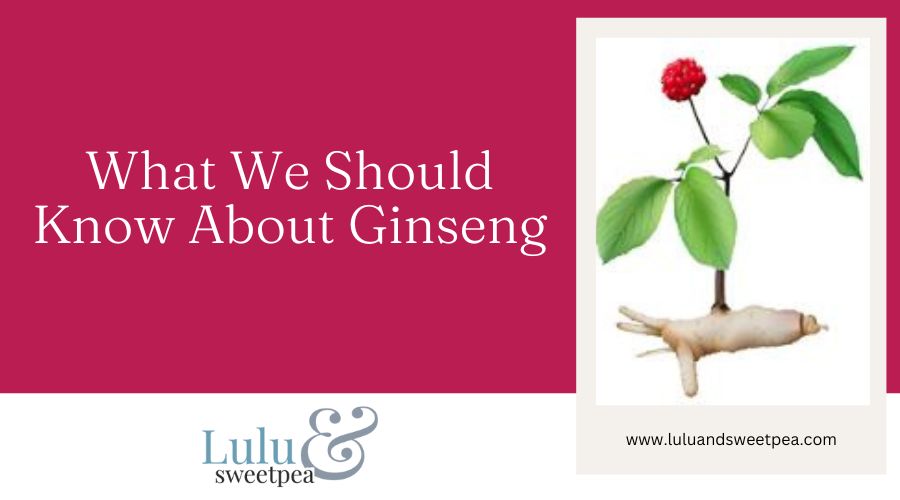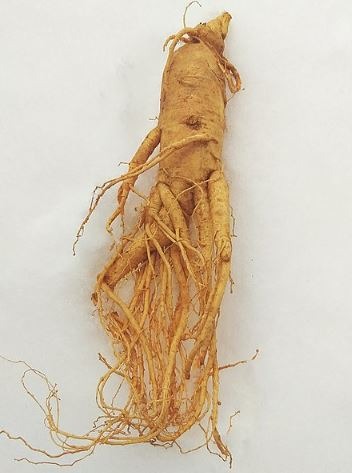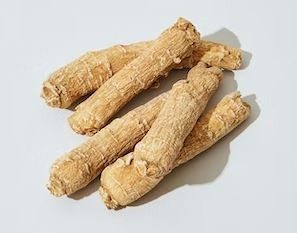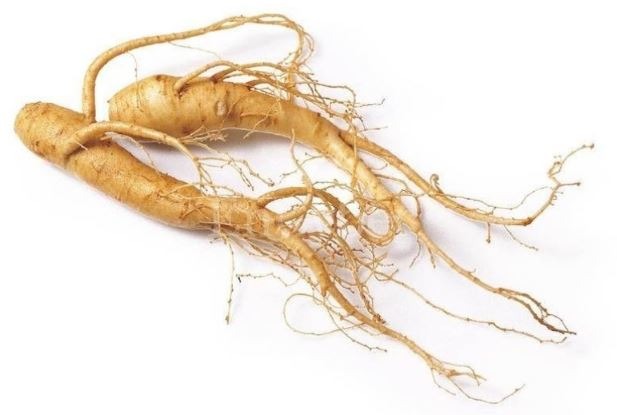Whether we’re looking at a new health supplement or an energy drink to keep yourself awake and energized – it seems like everything contains some form of ginseng these days. Those who look for more natural alternatives to mainstream medication will also find ginseng as a treatment from many ancient traditional medicinal practices.
Ginseng is one of the best-studied medicinal herbs in the world, but it’s still one of the most misunderstood, especially among Westerners.
Read more to discover what you need to know about ginseng, especially its benefits and uses.
What is Ginseng?
Ginseng refers to a short, slow-growing plant with fleshy roots known to restore and enhance well-being. It’s also popular for its use in traditional Chinese medicine for centuries. Ginseng is native to cold, forested areas of Korea, Northeastern China, the United States, and Canada.
The term “ginseng” is derived from the Chinese word “rénshēn,” where “rén” means “person, and “shēn” means “plant root.” The Chinese word refers to the characteristic forked shape of ginseng’s root, which looks like a person’s legs. The plant’s tapered root has a tanned color. The plant itself has a long stalk and green, oval leaves. The fleshy roots are the most valuable part of the plant, which are usually dried and made into powders or concentrated liquid extracts that are then used in capsules and tablets.
Ginseng can be classified as fresh, white, or red. Fresh ginseng is harvested before four years, while white ginseng is harvested between 4-6 years. Meanwhile, red ginseng is harvested after six or more years. There are 11 varieties of ginseng, but the most popular are Asian ginseng (Panax ginseng) and American ginseng (Panax quinquefolius, L.) The genus name Panax is derived from the Greek word for “all healing.”
Ginseng contains two significant compounds: gintonin and ginsenosides, which complement one another to work their wonders. This plant has been used medicinally for thousands of years and offers various health benefits. It’s often used to boost brain function and relieve stress, making it a common ingredient in energy drinks.
Wild ginseng is very expensive, highly prized, and hard to find. In the US, there are strict regulations surrounding farming, harvest, and export. As a result, most ginseng you get in supplements is cultivated. Cultivated ginseng may not have the potency and prestige of the wild stuff, but it’s perfectly acceptable. In fact, standardized extracts of ginseng cultivated from a reputable source may be better – it guarantees a specific level of ginsenosides, the active ingredient responsible for ginseng’s health benefits.
American vs. Asian Ginseng
Both American and Asian ginseng may help boost energy, lower cholesterol and blood sugar levels, reduce stress, treat diabetes, promote relaxation, and manage sexual dysfunction in men. Both contain potent adaptogens that help the body adapt to the adverse effects of stress while boosting immunity, mental and physical energy, resilience, and overall well-being.
But the two species of ginseng are not identical. They come with distinct properties that make them useful for different purposes.
Asian Ginseng
Panax ginseng has been sought after in China, Japan, and Korea for thousands of years. Traditional Chinese medicine classifies the plant as a warm, stimulating, and invigorating medicine – a “Qi” tonic that boosts vital energy.
Asian ginseng works as an adaptogen that helps restore balance and combat the adverse effects of stress, like exhaustion, organ dysfunction, and depletion of the immune system. It enhances immunity and resistance to infectious diseases, supports lung function, controls blood sugar, and improves cardiovascular health. Asian ginseng also works as a treatment for erectile dysfunction and for increasing libido.
One of its most notable benefits is the reduction in fatigue, causing a boost in physical energy and mental alertness, accuracy, and mood. And it works immediately. Studies reveal that people taking ginseng can notice noticeable improvements in mental and physical energy just within a couple of hours after taking it.
American Ginseng
American ginseng has long been a mainstay in Native American medicine, especially in the Ozarks, Appalachia, and Eastern Canada, where wild ginseng is most plentiful.
While Asian ginseng is warm and stimulating, traditional Chinese medicine classifies American ginseng as a “yin” tonic. It also helps balance mental and physical function, but it’s calming, cool, and non-stimulating, making it an ideal supplement for today’s stressful and fast-paced lifestyles.
Like Asian ginseng, the American variety has been shown to enhance immunity and reduce the risk of respiratory infections. Limited research also suggests that it may help lower blood pressure and blood pressure, and improve insulin resistance.
American ginseng has impressive effects on cognitive function, as this adaptogen can improve short-term recall, attention, memory, and mental accuracy. It showed significant improvements in working memory, which is an important aspect of cognition that enables us to remember short-term information and is essential to decision-making, reasoning, and overall functioning.
Health Benefits of Ginseng
Ginseng roots are known as a traditional medicine that is thought to provide various benefits as a stimulant, anti-diabetes agent, aphrodisiac, and treatment for sexual dysfunction in males. Here is the myriad of health benefits ginseng can offer:
1. Increases energy levels
A reason why ginseng is a popular ingredient in energy drinks is that it has been shown to increase energy levels and fight fatigue. People who feel weak, sleepy, and tired may get physical and mental stimulation with ginseng. A study found that ginseng can also help people with chronic fatigue.
Various animal studies (1, 2, 3) linked some components in ginseng, like oligopeptides and polysaccharides, to lower oxidative stress and higher cell energy production, which help fight fatigue. Another study also explored the effects of ginseng on cancer survivors experiencing fatigue, and it proved that it could help lower fatigue levels.
Also, a review of more than 155 studies suggested that ginseng supplements can do beyond reducing fatigue – they can also enhance physical activity.
2. Improves cognitive function
Ginseng does not only improve physical energy but mental energy as well. It helps improve cognition and thinking processes. Human and animal studies proved that ginseng components have the potential to treat some cognitive deficits. It can reduce oxidative stress, which leads to enhancement in cognitive functions.
Numerous studies (1, 2, 3, 4) showed that ginseng could benefit mental functions, produce feelings of calmness, and improve mood in healthy people and those with Alzheimer’s disease. Another study also concluded that Korean red ginseng could help improve frontal brain lobe function.
3. Treats erectile dysfunction
Men who are looking for an alternative treatment for erectile dysfunction may look to ginseng for relief, according to research (1, 2). It seems that compounds in the herb may protect against oxidative stress in tissues and blood vessels in the penis, helping restore its normal function. A study involving men with mild to moderate erectile dysfunction found that ginseng berry extract improved overall sexual function.
In addition, studies (1, 2) have shown that ginseng may promote the production of nitric oxide, a compound that increases blood circulation and muscle relaxation in the penis. A study found that men treated with Korean red ginseng showed a 60% improvement in symptoms of erectile dysfunction, compared to a 30% improvement produced by medication.
4. Comes with anti-inflammatory effects
Ginseng may help reduce and regulate inflammation. According to a study, the ginsenosides in ginseng target pathways in the immune system that can reduce inflammation. Test-tube studies (1, 2, 3) have shown that ginseng extracts and ginsenosides could prevent inflammation and increase antioxidant capacity in cells.
For example, a study found that Korean red ginseng extract improved antioxidant activity and reduced inflammation in skin cells in people with eczema. Another study followed postmenopausal women, and it showed that red ginseng caused a decrease in oxidative stress. Researchers concluded that red ginseng might help reduce stress by increasing the activities of antioxidant enzymes.
5. Strengthens the immune system
Ginseng can also act as an immune system booster.
Some studies that explored its effects on the immune system focused on cancer patients undergoing chemotherapy or surgery. A study showed significant improvements in immune functions and lower recurrence of symptoms in people recovering from surgery due to stomach cancer. Another study found that red ginseng extract can improve the immune system of people with advanced stomach cancer undergoing post-surgery chemotherapy.
Ginseng can even enhance the effects of certain vaccinations against diseases like influenza.
6. Prevents flu
Ginseng may even serve as a protection against the flu.
Research on the effects of ginseng on rats suggests a possible link between ginseng and the prevention and treatment of influenza and respiratory syncytial virus (RSV). Another study found that red ginseng extract could improve the survival of human lung epithelial cells infected with the influenza virus. Still, how ginseng works as an anti-viral agent is yet to be determined.
7. Helps lower blood sugar
A study suggests that ginseng may help lower blood sugar and treat diabetes. It also seems beneficial in controlling blood glucose in people with or without diabetes (1, 2)
Ginsenosides in ginseng may improve insulin resistance and affect insulin production in the pancreas. Both Asian and American ginseng has been shown to improve pancreatic cell function, enhance the uptake of blood sugar in the tissues, and boost insulin production (1).
Another study showed similar benefits of ginseng in lowering blood sugar. It revealed that fermented red ginseng could be effective in increasing insulin levels and lowering blood sugar.
Moreover, research shows that ginseng extracts can help reduce free radicals in the cells of those with diabetes by providing antioxidant protection.
8. May reduce the risk of certain cancers
Moreover, ginseng can even possibly reduce the risk of certain cancers. The ginsenosides are proven to aid in reducing inflammation and provide antioxidant protection (1, 2), and a review of several studies concluded that people taking ginseng might have a 16% lower risk of developing cancer. It can potentially reduce the risk of developing lip, mouth, stomach, esophagus, colon, lung, and liver cancers.
Also, ginseng can help improve the health of patients undergoing chemotherapy, enhance the effect and reduce side effects of some treatment drugs.
How to Use Ginseng
Don’t know how to take ginseng? Here are the ways you can consume it to take in its benefits:
1. Straight from the root
Ginseng root can be eaten raw, or it can be lightly steamed to soften it.
You can increase alertness and energy throughout the day by tucking a small piece of dried ginseng root into your cheek. Then, press it gently between your molars or between the tongue and roof of the mouth instead of chewing it. Keep it in your mouth until it loses flavor.
2. Add to food
Ginseng can be added to different recipes, but it adds a bitter, earthy taste, so it’s often only added for its health benefits rather than flavor. Fresh ginseng roots or ginseng slices are added to stir-fry dishes and soups. Ginseng powder can be added to baked goods, simmered in rice, or sprinkled with any savory dish you like.
3. Steep in tea
Ginseng tea can benefit those who want to recover their strength, get an energy boost, and improve their immune system.
If you’re using dried ginseng, grate it or whirl it quickly through a coffee grinder until you have flakes. Put one to two tablespoons into a tea bag or the bottom of your cup. Add water heated to just below a boil, and let it steep for two to three minutes. Then, remove the tea bag or strain the tea. Add honey if you like, but Chinese tradition dictates that it must be enjoyed as it is.
If you’re using ginseng root, rinse thoroughly to remove dirt, and simmer on low heat for 20-25 minutes. Make sure it boils. Then, serve in a cup or mug with or without honey.
4. Used as a cooking spice
Ginseng is aromatic, with a licorice-like flavor and earthy undertones. Here are some ways you can use it to bring additional flavor to foods and drinks:
- Sprinkle powdered dried ginseng into ground coffee before brewing it to boost the effects of caffeine and add a unique flavor.
- Put a small slice of dried ginseng into simmering broth and let it sit for about an hour. This can add flavor to the broth without the added sodium. Leave it in the soup or fish it out before serving.
- Add a sliver of dried ginseng to honey to offset its sweetness a little and enhance its health benefits.
- Slip a whole dried root (one that’s slim enough) inside a bottle of vodka and let it soak for two to three days to add a hint of earthy sweetness. Sip the vodka as it is, or add a shot of orange juice.
5. Taken as a capsule, tablet, powder, or oil forms
Choosing ginseng products can be challenging, given the many brands available and the wide range of ginsenosides in different supplements. How much you take will depend on the type and strength of standardization. Because the potency or strength of the products varies widely depending on the form, look at the standardized extracts. Here’s what is recommended:
- Asian ginseng – Look for a product standardized for 2% to 4% ginsenosides. The typical dose is 200 to 400 mg per day. Because it can energize, a product containing Asian ginseng is best taken in the morning.
- American ginseng – Look for a product standardized for 10% ginsenosides and has a suggested daily dose of 200 mg once or twice a day.
Daily doses of 1-2 grams of raw ginseng root or 200-400 mg of ginseng extract are suggested. It’s best to consume it before meals to increase absorption by the body.
Ginseng capsules, powder, tablets, or oil, can be taken in conjunction with other natural ingredients and adaptogens such as Rhodiola and ashwagandha. However, it’s not recommended for children and women who are pregnant or breastfeeding. And before taking any ginseng supplement, always consult your doctor first to make sure it’s appropriate for you, especially if you are taking medications.
Side Effects and Risks
Generally, ginseng is safe to consume, but some people experience the following side effects:
- Headaches
- Insomnia and other sleep problems
- Nausea
- Digestive problems
- Diarrhea
- Rapid heartbeat and palpitations
- Changes to blood sugar and blood pressure
- Hypertension
- Swelling of breasts and vaginal bleeding
- Severe skin reactions
As mentioned earlier, ginseng is not recommended for pregnant and breastfeeding women.
People taking diabetes medications must monitor their blood sugar levels closely when taking or using ginseng to ensure these levels won’t go too low. Ginseng can alter the effects of diabetes, blood pressure, and heart medications, including calcium channel blockers like nifedipine. Don’t take ginseng and heart medications at the same time without first consulting a doctor.
Also, ginseng may reduce the effectiveness of anticoagulant drugs. This herb can also increase the risk of bleeding when taken with blood thinners like aspirin and warfarin.
Extended use of ginseng can decrease its effectiveness in the body. To maximize its benefits, take ginseng for only two to three-week cycles with a one or two-week break in between.
Conclusion
Ginseng is an herbal supplement used for centuries in Chinese medicine. It’s commonly touted as a stimulant for its antioxidant and anti-inflammatory effects. It could also strengthen the immune system, enhance brain function, improve symptoms of erectile dysfunction, and prevent flu.
It can be consumed raw, lightly steamed, or cooked with dishes. It can also be added to your diet via powder, capsule, tablet, or extract form. Ginseng is worth trying if you want to improve a certain condition or give your health a boost.
Before taking ginseng supplements, ensure that it is suitable and safe for your condition. Always consult your doctor before taking one.



